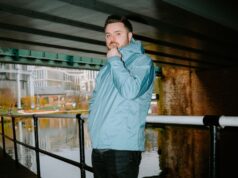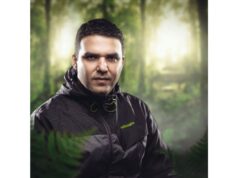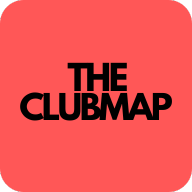Can you tell us about your background and how you first got started in music? How did you first become interested in electronic music and what drew you to it as a medium for self-expression?
HK:
I started learning piano when I was 7 and very quickly I realized that i didn’t want to play only one instrument, I wanted to compose tracks from scratch. Later, at the age of 18, I discovered music DAWs and software (Ableton and more) and since that moment I never stopped producing.
DALB:
At a very young age, I received some music theory lessons which, at the time, seemed to me completely abstract and not fun and of which I measure all the relevance today. Then I learned guitar as a teenager for many years before falling into electronic music late, around 20 years old. The energy of classic House Music (and nu-disco and nu-funk) I discovered and its capacity to make me dance in any circumstance conquered me. Naturally very creative and curious, I started to compose at the same time as my links with this new musical environment were tightening.
Who are some of your biggest musical influences, both within electronic music and outside of it? How have these influences shaped your sound and approach to creating music?
HK:
Saint-Germain mixed jazz and house music, I wanted to do the same but with Acid synthetizers, in the way of Dj Pierre and with a Piano House side inspired by Kerri Chandler. These 3 artists had a real impact on what I released at the beginning of my career, today I evolve quite a bit in my project with Rave, Garage and Eurodance music inspirations…
DALB:
3 main influences: the precision and the emotion of the original House of Chicago and Detroit, the madness and the ardor of Euro-house/Italo-house of the European scene of the end of the 90s and the sweat of 80s Funk.
Can you walk us through your creative process for writing and recording a new song? How do you typically begin a new track, and what are some of the key elements or techniques you focus on as you develop it
HK:
I often start with a melodic pattern, then I look for counter melodies or a baseline that fits well with it, I try to make the different loops communicate with each other and if I come up with something interesting and heady, I’m inspired to make the rhythmic part, then comes the addition of FX and the structure.
DALB:
Usually, I send $4000 to my ghost producer by Paypal with a Youtube link of a song I would like him to copy. Today I’m starting to get interested in artificial intelligence that could provide this service for much less.
Your latest project is really gaining traction, can you tell us about it? How did this project come about and what inspired you to create it? What was your approach to making it and what do you think sets it apart from your previous work?
HK: Deborah Aime la Bagarre came to my studio one day with two strong ideas in mind: eating lebanese food and producing a 90s vibe summer Piano House track with massive diva vocals. He remembered this track „Summer Is Magic“ from Playahitty released from 1994 and we immediately agreed to reuse the acapella, which was then sung by an other professional female singer. The more the track progressed the more we were influenced by late 90s Eurodance and that gave „Magic 2000“.
DALB:
Herr Krank said it all. We consider this project as a “bonus” in our releases“ since it is a bit more modern, faster and include more singing than any of our other productions. We’ll be back with some acid piano house together very soon.
What has been the highlight of your career so far? Can you talk about a specific moment or accomplishment that stands out as particularly meaningful to you?
HK:
Personally, it is at the very beginning of my career with my track „Acid Jazz“ which accumulated several million views while I had produced it with very little means, in my room and at that time I had only performed very little in front of the public, I was nobody in the world of the music. It allowed me to get to where I am today, to meet actors of the French electronic scene, to exchange with artists I admire, and to be spotted by my current booking agency Chevry Agency.
DALB:
Realizing after 16 seconds of recording that I absolutely should not have tried to sing on my productions. Otherwise, the integration of my booking agency and family Chevry Agency as well as the beginning of the collaboration with Herr Krank (with Acid Piano Track) have transformed my artistic life.
Can you tell us about any upcoming projects or collaborations you have in the works? Are there any new directions or sounds you’re exploring in your music right now?
HK:
I have a lot of projects coming this year in different styles but with some common denominators : Piano riffs, Acid bass lines and dancing beats : a Disco House single with Bubs, a solo Techno/House EP influenced by jazz music, a Piano House EP with Deborah Aime La Bagarre including remixes of Tour-Maubourg, Vitess and another solo EP influenced by Electro, Rave Music and old school Trance.
DALB:
Getting better and sharper at doing the same kind of shit again and again.
As a musician, what message do you hope to convey through your music? What themes or ideas do you find yourself returning to again and again in your work?
HK: I like to transmit a lot of emotion through my songs. I try to do warm things in general, sometimes it transmits nostalgia, melancholy with always a note of hope and sometimes it’s very sunny things that feel a lot of joy with the aim of giving a big desire to dance.
DALB: Pleasure, smile and dance. My link with House music is truly positive and physical so I am aiming to produce to listeners the same feeling as when you’re 5 years old and you manage to ride a bike without the safety wheels for the first time.
Can you tell us about any challenges you have faced in your career and how you overcame them? Have there been any specific obstacles or difficulties you’ve had to navigate as an electronic musician?
DALB:
I haven’t flown for 4 years for ecological reasons and it’s not easy as an artist and DJ. We (my agency and I) regularly refuse dates too far for the train and we adapt to this specificity in terms of logistics and partnerships. Not 100% easy but so much worthy to be aligned with your values.
How do you see the music industry evolving in the next 5 years? What changes do you think we’ll see in terms of technology, distribution, and audience engagement?
HK:
The only thing that worries me a bit for the next 5 years is the artificial intelligence that is evolving at full speed, we will have to succeed in taming these new tools that are arriving little by little in music, to succeed in standing out as an artist, I hope that AIs will not kill the work of composers but the composition process will probably evolve and we will have to update ourselves quickly.
DALB: I hope our scene will be more environmentaly/socialy engaged and offline human connections will get stronger with less screens and technology.
What advice would you give to aspiring musicians trying to make it in the industry? Are there any particular tips or strategies you’ve found to be particularly effective in building a career as an electronic musician?
HK:
It’s important to be close to your community, to take the time to answer them, to thank them. Be true to yourself, do what you want to do, be interested in the people around you so that they want to be interested in you. Beyond that it’s good to know how to tame the social networks that are now almost essential to the career of an artis.
DALB:
Stay true to your values, tastes and artistic direction because there will always be people who are aligned with what you think and produce and it is with them that you want to move forward, share and evolve.
What’s next for you?
HK:
I built a new live for the summer with new influences, it’s like an evolution of my project, I already play it a few times and I’m very proud of the result.
DALB:
After this interview, I’m going to eat a salad with seasonal vegetables in the sun as I often do because spring is magic.








